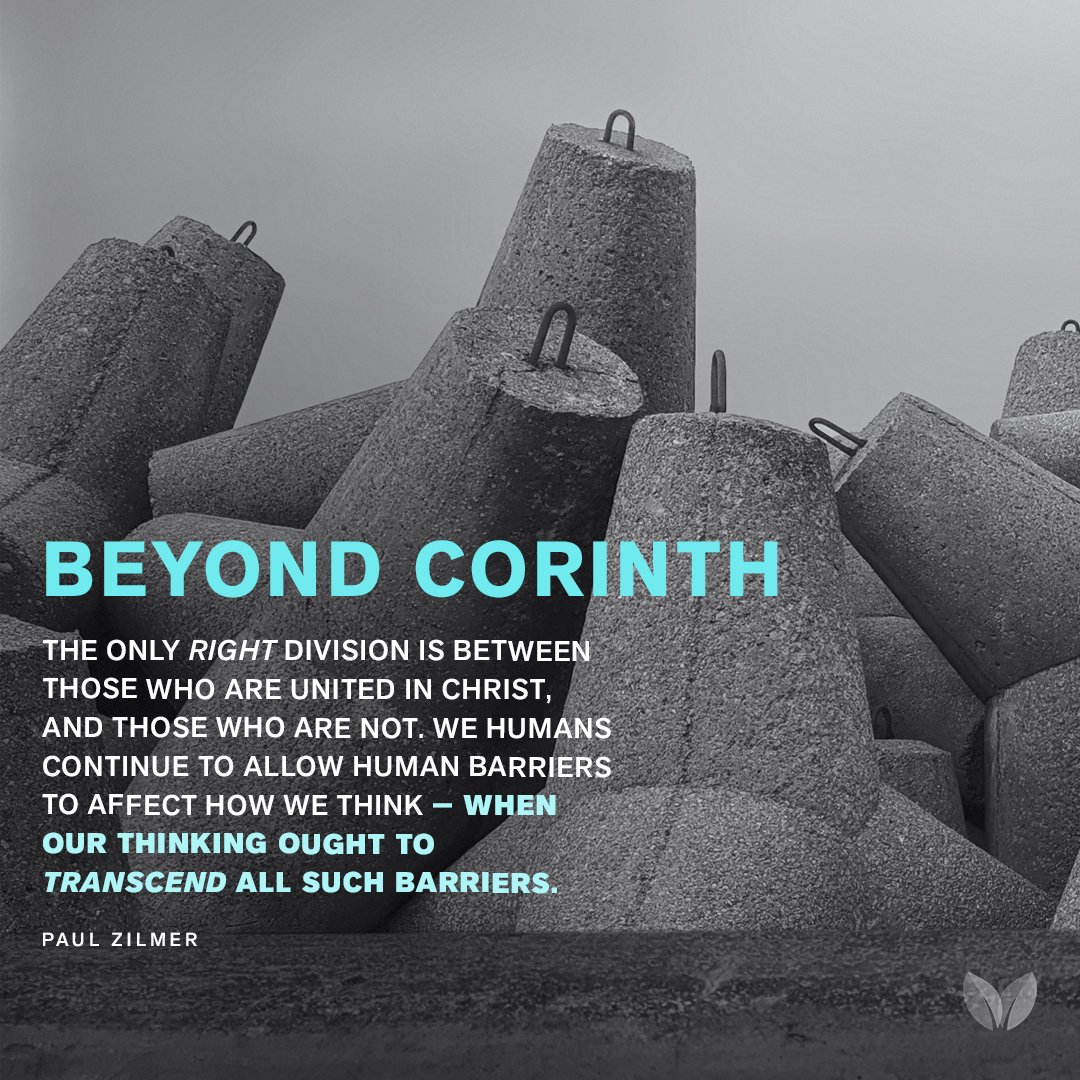Beyond Corinth
Paul addresses his audience: “To the church of God that is in Corinth, to those sanctified in Christ Jesus, called to be saints together with all those who in every place call upon the name of our Lord Jesus Christ, both their Lord and ours… “ (1 Corinthians 1:2)
Did you notice? It isn’t only those in Corinth he’s writing to. He is aware that this letter will become widely distributed. It’s to those sanctified in Christ Jesus in Corinth, together with all those who in every place call upon the name of the Lord Jesus Christ.
So it’s explicitly correct to consider ourselves among the intended recipients. That should cause us to be alert to Paul’s teaching—which includes quite a lot of correction. It’s written to us, not only to some long-dead Greeks. Paul has some sharp words for them. For us.
But what really struck me this time is how Paul describes the community of faith he is addressing. This community crosses all national boundaries, and all boundaries of time. “All those who in every place call upon the name of our Lord Jesus Christ.” What links us together? We call Jesus our Lord. Our ruler, the head of our government. We acknowledge (or ought to acknowledge) no other ruler. This point is made very clearly in Hebrews 11:9-16 and elsewhere.
In the world, there are countless barriers among people—of nationality, race, language and many other kinds. People who claim to be Christians go to war against each other! In Christ, “Here there is not Greek and Jew, circumcised and uncircumcised, barbarian, Scythian, slave, free; but Christ is all, and in all.” (Colossians 3:11) Whatever else we are by the world’s definition, we are all one community, by Christ’s definition.
Paul goes on in his first letter to Corinth to deplore divisions among brothers and sisters in Christ (1:10-15, 3:1-10, and more). He talks at length about all of us collectively being the “one body” of Christ (12:12-26). The only right division is between those who are united in Christ, and those who are not (10:14-22).
This teaching has proven very hard for even believers to embrace. We humans continue to allow human barriers to affect how we think—when our thinking ought to transcend all such barriers.
What are we to do? Well, a good start would be a fresh read of 1 Corinthians, where Paul is addressing the issue head-on. Addressing it…to us! And of course it does no good if we just let our eyes move over the words, without letting them penetrate. As Paul says in discussing the remembrance of Christ in the bread and wine, “Let a person examine himself, then, and so eat of the bread and drink of the cup. For anyone who eats and drinks without discerning the body eats and drinks judgment on himself. That is why many of you are weak and ill, and some have died. But if we judged ourselves truly, we would not be judged.” (11:28-31) If that doesn’t cause you to sit up, read it again. This is serious! Examine ourselves, Paul says. Judge our own actions and attitudes. Discern the body. Serve “their Lord and ours”, and no other.
Love, Paul


